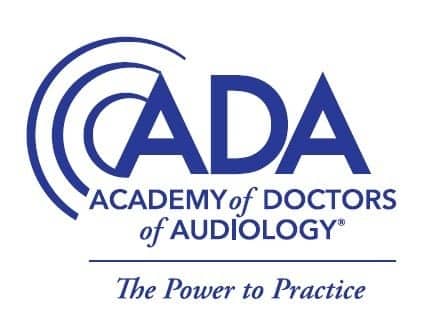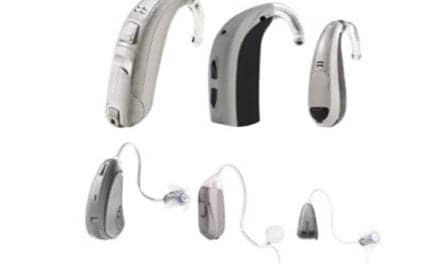The Academy of Doctors of Audiology (ADA) has announced that it supports S.9, the Over-the-Counter Hearing Aid Act of 2016, and the ADA commends Senators Warren and Grassley for their foresight in introducing and advancing this legislation, which if enacted, will remove unnecessary and burdensome barriers to hearing care for millions of Americans.
As explained in a US Senators Elizabeth Warren (D-Mass) and Chuck Grassley (R-Iowa) previously announced that they will introduce the Over-the-Counter Hearing Aid Act of 2016. The bipartisan bill would make certain types of hearing aids available over the counter (OTC) and remove requirements that currently create barriers for many consumers who could benefit from hearing aids.
The ADA further explains that the Over-the-Counter Hearing Aid Act of 2016 would allow hearing aids that are intended for use by adults to compensate for mild to moderate hearing impairment to be sold over the counter (OTC) and would eliminate the requirement that people obtain a medical evaluation or sign a waiver in order to acquire these hearing aids. It should be noted that since the OTC bill’s introduction, the FDA issued guidance to remove the medical evaluation requirement. More information about the FDA guidance is covered in a December 7, 2016 Hearing Review article. The Over-the-Counter Hearing Aid Act of 2016 also asks the FDA to issue regulations containing safety and labeling requirements for this new category of OTC hearing aids and update its draft guidance on Personal Sound Amplification Products (PSAPs).
The ADA and its members have stated that they seek to foster expanded access for consumers to audiology services. The ADA strives to accomplish this goal through the advancement of practitioner excellence and high ethical standards in the provision of quality audiology care. The Over-the Counter Hearing Aid Act will help to facilitate these objectives and is consistent with the ADA’s mission and philosophy. View ADA’s June 29, 2016 comments to FDA, which contain these same recommendations.
ADA recommends that over-the-counter (OTC) products be very specifically labeled and include a strong recommendation that a patient seek a comprehensive audiologic evaluation from an audiologist or physician prior to purchasing any device for the treatment of hearing loss, especially if the patient exhibits any of the warning signs of ear disease (tinnitus, dizziness, drainage from the ear, sudden hearing loss, asymmetric hearing, foreign body in the ear, cerumen impaction, pain, congenital or traumatic deformity of the ear). The ADA also recommends labeling that states that the device is a “non- surgical, air conduction hearing aid intended to address mild to moderate hearing loss.”
With regard to amplification gain and output, appropriate safety measures should be undertaken for all amplification devices including hearing aids, smart phones, headphones, hearables, assistive listening devices, and PSAPs. The ADA strongly recommends that all amplification devices be required to adhere to defined maximum output thresholds.
The availability of OTC hearing devices, with the inclusion of appropriate labeling and safeguards, will allow consumers to make better informed decisions about their treatment options, and will likely also make products more affordable and accessible to people with hearing loss.
The Over-the-Counter Hearing Aid Act of 2016 implements recommendations from the President’s Council of Advisors on Science and Technology (PCAST) and the National Academies of Sciences, Engineering, and Medicine (NASEM), which have both recommended making some type of hearing aids available over the counter and removing the requirement of a medical evaluation in order to allow millions more Americans to access hearing aids.
The ADA stipulates that there are risks with self-treatment, including overlooking conditions that warrant medical intervention. However, ADA contends that in the current regulatory environment, those risks are already being taken with either limited information–or worse, misinformation.
There is a preponderance of data available today which demonstrates that, when it comes to hearing loss, the risk of non-treatment may be greater than the risk of self-treatment. The prevalence of co-morbidities and maladies associated with hearing loss is well documented, as are the benefits of amplification in improving quality of life and mitigating serious health conditions. Therefore, the public will be best served if basic hearing devices are available to consumers over the counter, just as they are already available over the Internet and via mail order.
The regulatory environment has struggled to keep pace with rapid advances in hearing amplification technology. Creating an OTC hearing device market will foster competition, broaden consumer choice, improve affordability, and accelerate future innovation. Given that consumers already have direct-to-consumer Internet access to hearing aids and similar unregulated technologies, the creation of a regulated OTC class will not increase existing risks to the public.
In the summary of its announcement, the ADA states that the removal of the medical clearance requirement and the availability of a regulated OTC hearing device, which calls for FDA to include appropriate labeling and safety measures, will expand access to quality hearing health products and services, reduce duplicative costs, and remove unnecessary, non-beneficial barriers to care. For this reason, the ADA is supports S.9, the Over-the-Counter Hearing Aid Act of 2016.
Source: ADA






If they make this otc hearing aid only for mild loss , like eyeglasses for reading , everything would be fine but if you try to fit people with moderate losses it’ll be trouble
These people need a professionally trained person to make it work right with a lot of work and adjustments to the patient for months to keep it working , I’ve had patients who come in every three weeks to change receivers on hearing because of wax ! Who going service these people Wallgrrens?????
And if the Consumer fails to hear better with an OTC device and no counseling or education, what makes you think they will turn to a professional for assistance? My fear is we will see many potential HA users turned off even more by inappropriate amplification. These folks will fail to get the help they need to hear better.
What is virtually unknown to most hearing professionals is something called intermodulation distortion that is high, dangerous, and causes possible neuromas due to distorted side bands that are by products of cheap wiring and cheap amplifiers.
The OTC is a threat to all its wearers. ADA and other audiology clubs need to learn and get wiser before promoting a product that could cause immense cognitive losses among its wearers.
That’s right, why not encourage people to potentially damage the hearing they have left. I have been in this field for 35 years and have always believed you people were idiots. Now I am totally convinced!
This will be the end of the field of Audiology and HIS will be joining us. With iPhone tech and apps that will be able to perform 1st fits, we will be rendered useless. Take my advice if you are in grad school, switch majors now.
Really? Is that your opinion of what you provide your patients, nothing more than they can get from opening a box and flipping on an app? I could not possibly feel more differently. Our practice is just opening. I have plans for two more. For progressive practice owners and practitioners willing to adapt to the changes that are coming, we have a far larger group of folks that we can take from the starter devices that they will get OTC and show them how improved testing, fitting, adjustments and counselling can put them in far better position to really hear the world in a way they never could with their OTC instruments. We will be glad to give them full trade in on them and work to price our products as affordably as possible. We offer 2 Widex Dream 440’s with 3 year warranty, loss policy and care for $ 2,900. Would you rather work with a practice that will help you hear wonderfully with Widex or spend $ 900 on devices from a company that will be like SOUNDHAWK – from NY TIMES STAR NEW PRODUCT to WE REGRET WE CAN NO LONGER SERVICE OUR PRODUCTS in 24 months?
If people buy it without seeing an audiologist and they still can’t hear with the over the counter hearing aid, it is still be a waste of money.